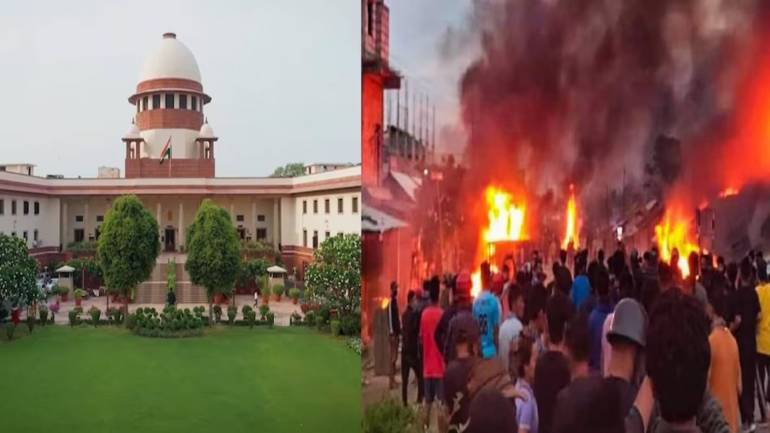Indian Supreme Court intervenes to halt violence in Manipur

The Supreme Court of India intervened on August 7 after the Bharatiya Janata Party, which leads the federal government in Delhi and governs the northeastern state, failed to curb the violence that had begun on May 3.
As part of its effort to restore peace in the strife-torn Manipur state, India's Supreme Court has constituted a panel of three retired women judges.
Justice Gita Mittal, former chief justice of the Jammu and Kashmir High Court, will head the panel. In addition to Justice Shalini Phansalkar Joshi from the Bombay High Court and Justice Asha Menon from the Delhi High Court, the commission will have two retired judges.
"The court order is a big step forward since the state government hadn't taken any steps to restore peace," a church official told UCA News.
Due to the fact that all of the women judges are from outside Manipur, he hoped that the riot-affected people would now be able to register their complaints and seek justice.
The three-person panel was given the mandate by the Supreme Court's bench, presided over by Chief Justice D.Y. Chandrachud, to "monitor relief works, remedial measures, rehabilitation, and restoration of homes and places of worship."
According to the order, this was an attempt to restore faith in the rule of law and to build a sense of confidence among people.
In the hilly state, which borders Myanmar's civil war-torn country, sectarian violence has claimed 190 lives and displaced over 50,000 people. Many people live on relief campuses, and others have taken shelter in forests.
Christian Kuki tribal members have destroyed, vandalized, and burned hundreds of churches over the past three months.
As the overseeing officer for 11 cases of sexual violence against women, the Supreme Court appointed retired Maharashtra police officer Dattatray Padsalgikar.
Prime Minister Narendra Modi's government oversees these cases through the Central Bureau of Investigation, an elite investigative agency.
Padsalgikar, however, will report directly to the Supreme Court.
Court judges heard petitions regarding Manipur unrest, including a case where two Christian women were gang-raped and paraded naked by a violent mob.
On July 19, a video of the May 4 incident surfaced, forcing Modi to speak out for the first time about the worrying situation in Manipur.
42 special investigation teams are looking into more than 6,000 cases of mob violence, and at least one police inspector and six senior police officers from outside Manipur are keeping an eye on them. The Supreme Court has directed this to the state government.
A majority Hindu Meitei community was granted tribal status against the wishes of the Kuki tribal Christians, which sparked the riots.
In India's affirmative action program, the prosperous Meiteis, who make up 53 percent of Manipur's 3.2 million people, would have gained special benefits such as education and job opportunities.
Tribal Christians also believed that once they gained tribal status, they would lose their traditional hill lands to the Meiteis.
Radio Veritas Asia (RVA), a media platform of the Catholic Church, aims to share Christ. RVA started in 1969 as a continental Catholic radio station to serve Asian countries in their respective local language, thus earning the tag “the Voice of Asian Christianity.” Responding to the emerging context, RVA embraced media platforms to connect with the global Asian audience via its 21 language websites and various social media platforms.














